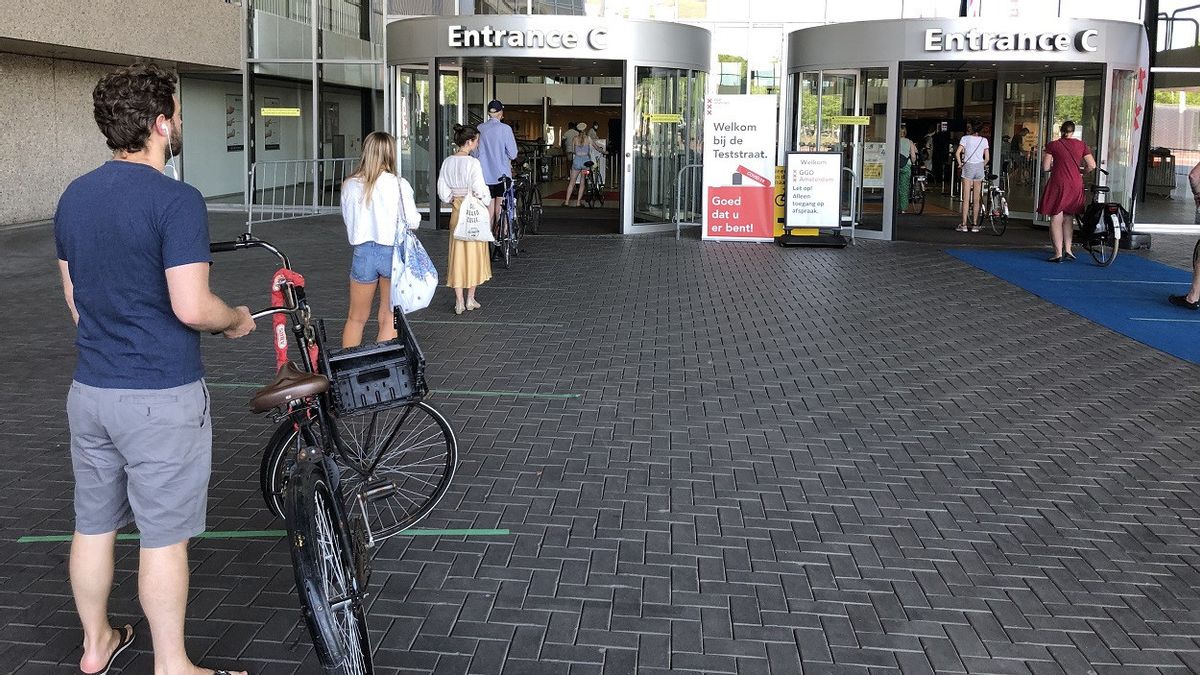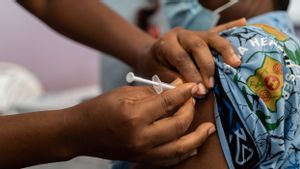JAKARTA - Europe is back at the center of the COVID-19 pandemic again, prompting some governments to reconsider imposing unpopular lockdowns ahead of Christmas, sparking debate over whether a vaccine alone is enough to tame COVID-19.
Europe accounts for more than half of the 7-day average of infections globally and about half of the latest deaths, according to a Reuters tally, the highest level since April last year when the virus peaked in Italy.
Governments and companies fear a prolonged pandemic will derail the fragile economic recovery. A number of countries including the Netherlands, Germany, Austria, and the Czech Republic are taking or planning steps to curb the spread.
Dutch Prime Minister Mark Rutte announced a three-week partial lockdown starting Saturday, the first in Western Europe since the summer. "The virus is everywhere and needs to be fought everywhere," PM Rutte said in a speech on Friday evening, citing Reuters November 13.
New concerns over what British Prime Minister Boris Johnson described on Friday as a "storm cloud" in Europe, come as successful inoculation campaigns have intensified ahead of the cold winter months and flu season.

About 65 percent of the population of the European Economic Area (EEA), which includes the European Union, Iceland, Liechtenstein, and Norway, have received two doses of the COVID-19 vaccine, according to European Union data, but the pace has slowed in recent months.
Take-up in southern European countries is around 80 percent, but doubts have hampered rollouts in central and eastern Europe and Russia, leading to outbreaks that could overwhelm health services.
Meanwhile, Germany, France, and the Netherlands also experienced spikes in infections, presenting challenges even for governments with high acceptance rates.
Hospitalizations and deaths are much lower than last year and large variations across countries in vaccine and booster use and measures such as social distancing make it difficult to draw conclusions for the entire region.
Virologists and public health experts told Reuters the combination of low vaccine uptake in some parts, reduced immunity among those inoculated early, and complacency about masks and social distancing as the government eased restrictions over the summer was likely to be the cause.
"If there's one thing to learn from this, don't take your eyes off the ball," said Lawrence Young, a virologist at Warwick Medical School in England.
Separately, the weekly report by the World Health Organization (WHO) until November 7 showed that Europe, including Russia, was the only region that recorded a 7 percent increase in cases, while other regions reported a decline or a steady trend.
Similarly, it reported a 10 percent increase in mortality, while other regions reported a decrease.
Measures taking effect in the Netherlands include restaurants and shops being ordered to close early and spectators barred from attending sporting events.
In Germany, authorities will reintroduce free COVID-19 testing from Saturday, Acting Health Minister Jens Spahn said yesterday. A draft law in Germany would allow measures such as mandatory face masks and social distancing in public spaces to continue to be enforced until next March.
Meanwhile, the Austrian government is likely to decide on Sunday to impose a lockdown on people who are not vaccinated, Chancellor Alexander Schallenberg said on Friday.
Most EU countries deploy additional injections for the elderly and those with weakened immune systems, but expanding vaccination to more of the population should be a priority to avoid measures such as lockdowns, scientists say.
"The real urgency is to expand the pool of vaccinated people as much as possible," said Carlo Federico Perno, head of diagnostic microbiology and immunology at Rome's Bambino Ges Hospital.
The European Union's drug regulator is also evaluating the use of Pfizer and BioNTech vaccines in children aged 5 to 11 years.

Norway will offer a third dose of the COVID-19 vaccine to everyone aged 18 and over and will give municipalities the option to use a digital "corona card", the government said on Friday. Norway has so far given the third dose only to those aged 65 and over.
Starting December 1, Italy will also offer a third dose to people over 40.
"This (outbreak) will probably lead the EU to look at the booster dose and say, we do need it ahead of time," said Michael Head, senior research fellow in global health at the University of Southampton.
In contrast to western Europe, governments in central and eastern Europe are still struggling to increase the number of COVID-19 vaccinations.
Latvia, one of the least vaccinated countries in the European Union, imposed a four-week lockdown in mid-October. His parliament voted on Friday to bar MPs who refuse vaccination from voting in the legislature and participating in discussions.
SEE ALSO:
Meanwhile, the Czech Republic, Slovakia, and Russia have also tightened restrictions. However, vaccines alone are not the silver bullet for defeating the pandemic in the long term, virologists say.
Some point to Israel as an example of good practice; In addition to inoculation, Israel has strengthened the wearing of masks and introduced vaccine passports after cases spiked a few months ago.
Measures such as distance, masks, and vaccine mandates for indoor places are essential, said Antonella Viola, professor of immunology at Italy's University of Padua.
The English, Chinese, Japanese, Arabic, and French versions are automatically generated by the AI. So there may still be inaccuracies in translating, please always see Indonesian as our main language. (system supported by DigitalSiber.id)













